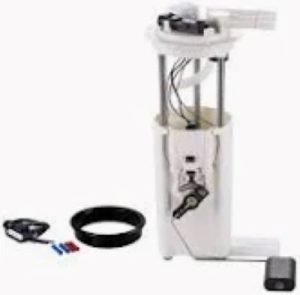A failed fuel pump can and typically will cause a check engine light, and is usually indicative of broader problems in the car's fuel system. The check engine light is a way for the driver to be notified of an issue that concerns fuel delivery, emissions, or general engine performance as detected by the ECU (Engine Control Unit). If the fuel pump does not provide enough fuel pressure (or any at all), this will starve your engine, lean it out and lead to misfires. In some cases, this can cause the ECU to illuminate a check engine light to alert you.
P0087 — Fuel Rail/System Pressure Too Low P0087 is a somewhat common DTC (diagnostic trouble code) and affects those vehicles equipped with direct-injected gasoline engines. Systems to Measure Fuel Pressure for Injection and Combustion The ECU keeps an eye on fuel pressure through any number of sensors, and it will store this code whenever the pressure falls below desired levels. In the worst of scenarios, codes P0230 – Fuel Pump Primary Circuit Malfunction, might also be stored in the ECU. An OBD-II scanner is able to read these codes and technicians can determine the problem and likely recommend repairs.
According to a 2020 study by CarMD, fuel system failures, among them the fuel pump., are diagnoses for roughly 10% of all "check engine" lights. This figure shows how commonplace fuel pump issues are in today cars. If a failing fuel pump causes the check engine light to come on, other symptoms will likely include hard starting (or no start), frequent stalling, poor fuel mileage or an engine that is completely disabled. Overlooking these warning signs may allow for severe problems with your engine caused by an inefficient fuel pump, which will result in overheated engines or, excessive wear of the engine as a consequence of improper supply of fuel.

Due to the different factors like fuel quality, maintenance culture among others, the lifespan of a fuel pump is usually unknown. The service life of the fuel pump is typically 100,000 to 150,000 miles. Low fuel level running the car all the time will make it hard for your fuel pump as it runs on gasoline which also cools and lubricate. Regularly keeping the tank at least a quarter full is a basic approach to enhancing the life of the fuel pump and averting early failure.
A bad fuel pump can also cause the car to fail an emissions test. When there is not enough fuel pressure, the effected engine can no longer keep the air-fuel mixture within a prescribed limit, so emissions soar. That is particularly an issue in areas with high emissions standards as it could keep a check engine light due to a failing fuel pump from passing the state-required inspections.
In short, replacing a problematic fuel pump as soon as possible may prevent more serious engine damage, help the vehicle consume less fuel for every 100 miles driven and maintain emissions compliance. Find out more diagnostics and replace it for your fuel pump at Fuel Pump.
